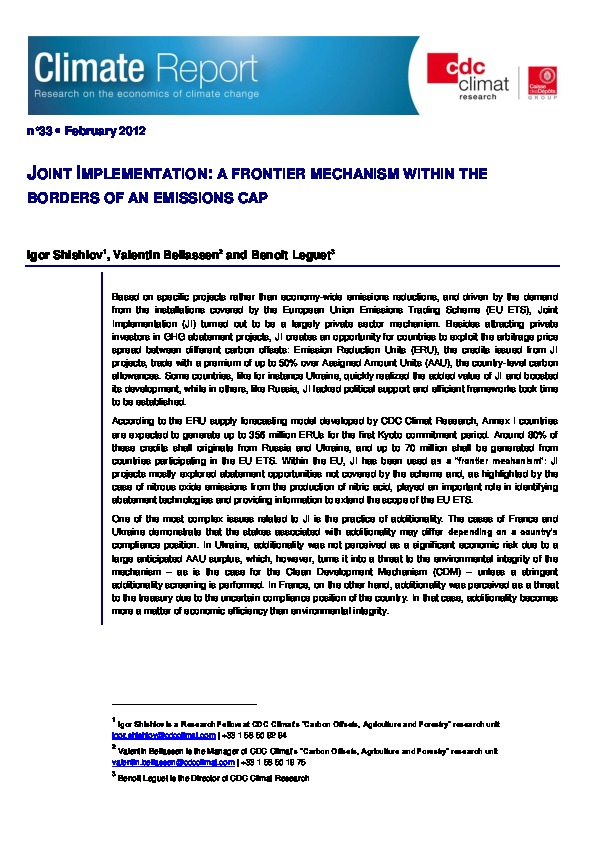JOINT IMPLEMENTATION: A FRONTIER MECHANISM WITHIN THE BORDERS OF AN EMISSIONS CAP
By Igor SHISHLOV, Valentin BELLASSEN et Benoît LEGUET
Based on specific projects rather than economy-wide emissions reductions, and driven by the demand from the installations covered by the European Union Emissions Trading Scheme (EU ETS), Joint Implementation (JI) turned out to be a largely private sector mechanism. Besides attracting private investors in GHG abatement projects, JI creates an opportunity for countries to exploit the arbitrage price spread between different carbon offsets: Emission Reduction Units (ERU), the credits issued from JI projects, trade with a premium of up to 50% over Assigned Amount Units (AAU), the country-level carbon allowances. Some countries, like for instance Ukraine, quickly realized the added value of JI and boosted its development, while in others, like Russia, JI lacked political support and efficient frameworks took time to be established.

